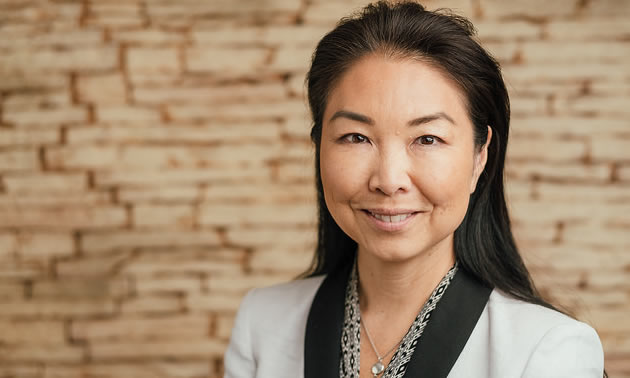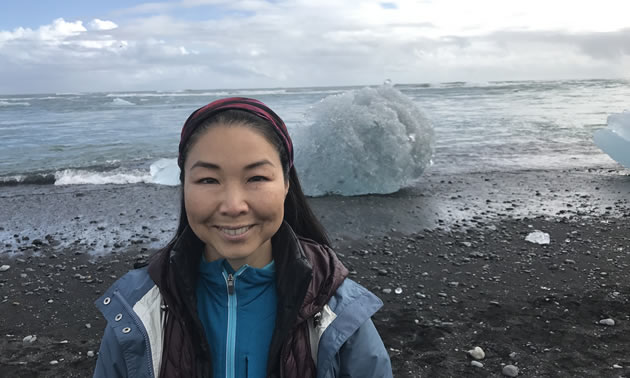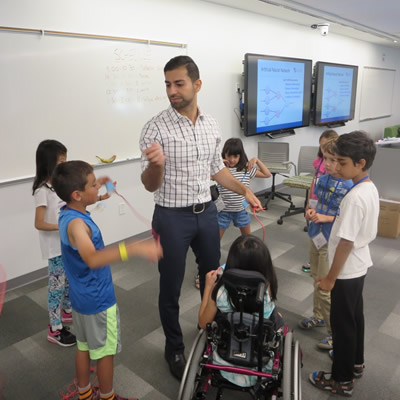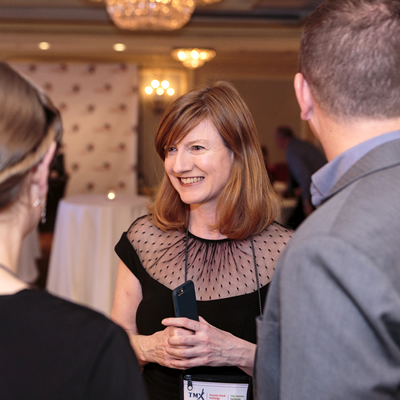Focusing on the business of science
CEO Kathryn Hayashi calls TRIUMF Innovations a crown jewel of Canadian science and technology

Kathryn Hayashi is CEO of TRIUMF Innovations, based in Vancouver, B.C. — Photo courtesy TRIUMF Innovations
Turning science into real-world applications is like turning straw into gold, or research into business. That’s why Kathryn Hayashi, CEO of TRIUMF Innovations, finds her position so rewarding.
TRIUMF Innovations Inc. is the commercialized portion of TRIUMF, Canada’s National Laboratory for Particle and Nuclear Physics. TRIUMF is the research team, while TRIUMF Innovations takes the developed technology to market. “I thought it was an opportunity to work with an organization that I think is a jewel in the crown of Canadian science and technology,” said Hayashi. “We are globally renowned as a leader in engineering and accelerator science.
“What I really like about my job is working with the TRIUMF team to try to turn good ideas into real outcomes,” she said, “real technology.” While working with early-stage technology, especially finding funding and partners, can be challenging, “when something does come together, it’s really exciting,” Hayashi said.
A role model for female scientists
There’s no denying that TRIUMF’s technology pushes boundaries. This goal of creating a valuable impact continues into Hayashi’s personal ventures as well. “One of the things I am thinking about more is how to be impactful in the world and how to build the next generation of scientists and innovators—particularly women,” she said. She mentors women at the university level. “How do we improve our outcome for women in science and technology careers?” she asks.
The team at TRIUMF is working on a similar goal through its efforts to create a data science training program. “Beyond how to make more opportunities for scientists to transition into data science careers, how do we get more women to be part of that process? Hayashi said. “I want to actively encourage, promote and mentor women in science careers.”
One of Hayashi’s proudest moments was taking the title of CEO when she first started at TRIUMF Innovations. “It was really rewarding,” she said. Hopefully, more women will follow her lead. “I think to change we have to be proactive. I’m not sure exactly what that will look like yet, but it’s something I want to spend more time and energy on.”
Hayashi travels the world
When Hayashi isn’t running TRIUMF Innovations or motivating women to pursue careers in science and technology, she is finding inspiration in new corners of the globe. “I love to travel,” she said. “Last year I went to Africa and Iceland. Last year was a big travel year, and I felt inspired by some of my trips.” An African safari had been on her list for years, and her husband surprised her with a trip to Iceland. “It was amazing,” Hayashi said. “I loved it!”
This year will hopefully be full of new sights and experiences as well. “Some of my finalists are Antarctica and the Galapagos, and I have to figure out a way to get to India as well. Those are my next three places,” she said.

When Kathryn isn't busy running TRIUMF Innovations she is exploring the world. This is from her recent trip to Iceland. — Photo courtesy TRIUMF Innovations
Advanced muon detectors
One of the spinoff companies from TRIUMF Innovations that is currently breaking ground is CRM GeoTomography Technologies (CRM). The research team at TRIUMF developed advanced muon detectors, but now CRM will continue to develop it as they bring it to market.
“CRM’s technology does 3-D imaging and monitoring,” Hayashi said. “It’s like x-ray imaging, but it can see through thick structures or hundreds of metres of rock.” Instead of using x-rays, the technology detects naturally occurring cosmic rays with advanced muon detectors. “These detectors produce x-ray-like images, and by combining images from multiple locations we build 3-D images,” she said. Essentially, they create a 3-D model of what’s under the earth.
Advanced muon detectors must be placed underground in order to collect data from their surroundings. The current limitation is their size, but CRM is working to decrease the size of the detectors. “Ideally you would like a detector that is small enough to fit in a drill hole,” said Hayashi. Still, these detectors have a few advantages over similar technology. “Unlike electromagnetic geophysical techniques, it’s not cofounded by conductive cover or by remnant magnetism. Unlike gravimetric techniques, it’s not dominated by near-sensor anomalies or perturbed by objects outside of its field of view.”
The muon detectors can be used in mineral exploration, resource operations monitoring, industrial imaging, as well as safety and security. In mineral exploration, for example, advanced muon detectors reduce cost and increase efficiency by minimizing drilling. “Unlike exploration drilling, muon geotomography can see through rock and identify where dense ore bodies are,” Hayashi said. The reaction to the technology has been positive, and CRM is excited to further develop the technology.




